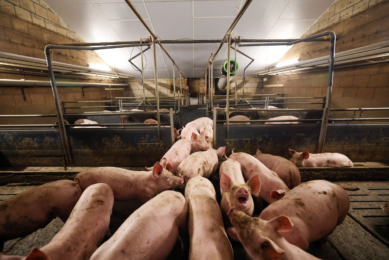Research: Diet complexity and pig performance
Spanish researchers studied the influence of diet complexity on productive performance and nutrient digestibility of weanling pigs.
The effect of diet complexity on coefficient of total tract apparent digestibility (CTTAD) and growth performance was studied in piglets from 21 to 62 days (d) of age.
Trial setup
There were five experimental prestarter diets (21–41 d of age) with similar net energy and total indispensable amino acids content.
The negative control diet contained 400 g raw maize, 40 g fish meal (FM) and 70 g lactose (LAC)/kg and the positive control diet contained 400 g cooked maize, 100 g FM and 140 g LAC/kg.
The other three diets were similar to the positive control diet but the cooked maize was substituted by raw maize or contained 40 g FM/kg or 70 g LAC/kg, respectively.
Each treatment was replicated six times (six pigs per pen).
For the starter period (42–62 d of age), half of the pens, from each of the prestarter treatments, were sorted into two groups. They were fed either a standard soybean meal–raw maize–lard diet or a diet with similar nutrient profile that included 200 g cooked maize, 50 g FM, 13 g LAC, 20 g soy protein concentrate and 10 g soybean oil/kg in substitution of lower cost ingredients.
Results
Dietary treatment did not affect piglet performance at any age, but during the prestarter period, incidence of diarrhoea was higher in piglets fed the negative control diet than in piglets fed any of the other diets.
At 30 d of age (prestarter period), the CTTAD of organic matter and gross energy were lower for pigs fed the negative control diet than for pigs fed the other diets, but that of crude protein was not affected.
At 50 d of age (starter period), dietary treatment did not affect the CTTAD of any dietary component.
Conclusion
It is concluded that the use of high levels of high quality ingredients in the diet did not improve growth performance of piglets at any age.
From 21 to 41 d of age, the incidence of diarrhoea was reduced and the CTTAD of dietary components was increased when the more complex diets were fed.
The inclusion of high levels of high quality ingredients in the diet to maximize performance of young pigs might not be justified under all circumstances.











